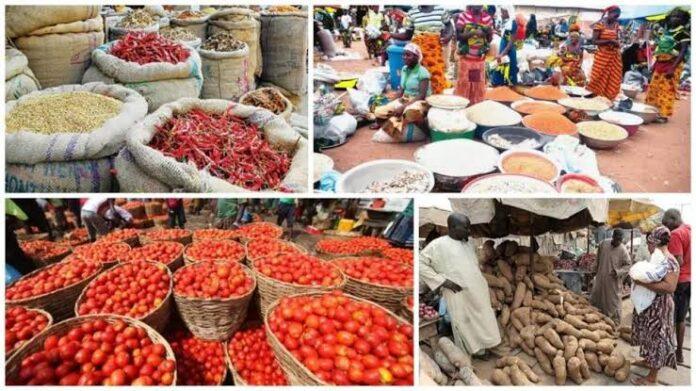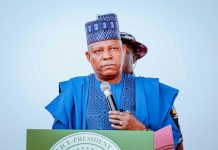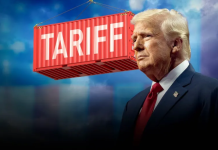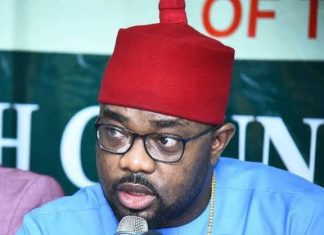Nigeria’s economic recovery is depicted in official figures, but the reality on the ground is more dire. The growing discrepancy between official growth claims and the excruciating expense of living that ordinary Nigerians must contend with is discussed in this essay by ISAAC ASABOR. The essay exposes the gap between economic theory and real-world experiences in Nigerian markets and households, showcasing professional perspectives, grassroots voices, and a critical examination of the World Bank’s support for reforms.
Even with optimistic government statements praising economic expansion and stability, the typical Nigerian still has to contend with the rapidly rising costs of products and services in all markets.
Nigerians are beginning to wonder about the value of economic progress that does not result in affordability or relief in what seems to be a tale of two economies—one measured in statistics and boardroom data, and the other lived in the trenches of everyday survival.
Given the above, it is convenient to start by stating that Nigeria’s GDP expanded by 3.13% in the first quarter of 2025, according to the National Bureau of Statistics (NBS).
This seems promising at first glance, particularly following years of weak performance, currency devaluation, and macroeconomic unrest.
However, the majority of Nigerians will tell you that the alleged growth is not noticeable in their day-to-day existence.
Fascinatingly, the Nigerian government has received praise from the World Bank for implementing challenging economic changes that are starting to produce macroeconomic gains.
The organization stated in its Nigeria Development Update (NDU) for June 2025 that “Nigeria’s reforms have helped restore macroeconomic stability, boost investor confidence, and improve public revenues.”
Former World Bank Country Director for Nigeria Shubham Chaudhuri stated, “The Tinubu administration deserves credit for implementing long-delayed reforms that could lay the foundation for stronger and more inclusive growth.” The impoverished and vulnerable must now be shielded from the immediate effects of those reforms.
The World Bank warned that “high inflation, rising unemployment, and increasing poverty remain significant risks,” even as it commended the measures to unify the currency rate, remove fuel subsidies, and curb budgetary leakages.
Prices are not declining, despite the fact that the inflationary rate may be. To combat persistent inflation, for example, the Central Bank of Nigeria (CBN) kept its monetary policy rate at 27.5% in July 2025.
Even if it decreased marginally from 23.71% in April to 22.22% in June 2025, the headline inflation rate is still among the highest in sub-Saharan Africa.
The food inflation rate, which has stayed well above 30% in many areas, is more concerning.
A 50 kg bag of rice currently costs between N75,000 to N99,000, up from N35,000 in 2023, according to a Lagos market survey.
Read Also: Zamfara Tragedy: 38 Kidnap Victims Executed After N50 Million Ransom Paid—Local Officials Confirm
Depending on the brand and market area, a loaf of bread that cost N600 in 2023 currently costs N1,200 or N1,300. In addition, the cost of meat, poultry, vegetables, and cooking oil has increased by 70–100% in less than a year.
Mrs. Iyabo Adeoye, a dealer in Mile 12 Market, stated that the inflation figures were not representative of the actual state of the market. Customers cannot afford to buy since prices are tripling every few months. These days, some people purchase food in tablespoons.
After fuel subsidies were eliminated in 2023, transportation expenses have also increased significantly. Before deregulation, fuel sold for N195 per liter; presently, it sells for between N900 and N1,000.
Food prices have increased in tandem with transportation expenses, which have increased by up to 200%, particularly in urban regions that rely on food that is brought from far-off rural areas.
Incomes hardly change as prices rise. The federal government recently announced a new minimum wage of N70,000, but many private and public enterprises are still not complying, and implementation is still uneven.
Uche Chukwuma, a security guard at Ogba in Lagos, stated, “I still make N45,000 a month, and I have three kids to support.” “How can I make ends meet when my monthly transportation costs N20,000? To make ends meet, I now miss meals.
The Nigeria Labour Congress (NLC) claims that despite the updated minimum wage, the majority of Nigerian workers are still unable to cover their basic expenses, and that unless inflation is addressed thoroughly, the amount will grow insufficient once more in the coming months.
Since mid-2023, the cost of providing three square meals a day to a family of five has more than doubled, according to a recent SBM Intelligence report.
According to them: “Inflation is not the only issue Nigerians are currently dealing with. It’s a serious affordability crisis.
The contradiction between macroeconomic performance and citizens’ microeconomic struggles has been repeatedly highlighted by economic professionals.
To put it simply, we are expanding the economy without affecting the people, says Dr. Muda Yusuf, the former Director-General of the Lagos Chamber of Commerce and Industry (LCCI).
Telecoms, banking, oil and gas, and other industries that don’t generate wealth or mass employment are driving growth. The sectors that affect the typical person, such as industry, agriculture, and SMEs, continue to face challenges related to power, insecurity, and logistics expenses.
Likewise, during a recent policy discussion, former CBN chief and Anambra State Governor Professor Chukwuma Soludo issued the following warning:
“Nigeria’s economy cannot be saved by monetary or fiscal tinkering unless structural reforms are coupled with comprehensive human development policies.” GDP growth is a paper tiger if people cannot afford healthcare, food, transportation, and rent.
This frustration is shared by dealers, purchasers, and transporters, according to information obtained from the ground up at Lagos’ Oyingbo Market.
Join Television Nigerian Whatsapp Now
Join Television Nigerian Facebook Now
Join Television Nigerian Twitter Now
Join Television Nigerian YouTUbe Now





